Black History Month
Acknowledging and celebrating Black ecologists.
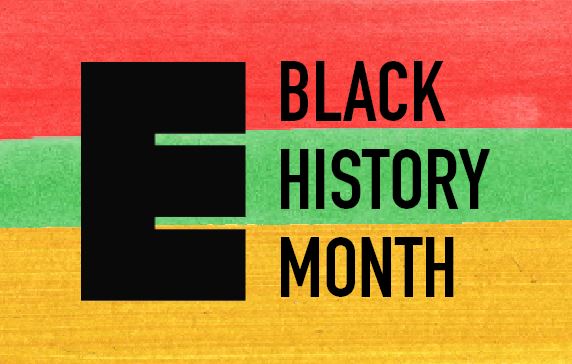
Black History Month is a UK-wide celebration that takes place every October, acknowledging and raising awareness of the contribution that Black African and Caribbean communities have made in Britain and across the globe.
We are excited to present a month-long blog series from our journals which aims to promote and profile the work of Black ecologists and ecological practitioners. This is just the beginning of our plans to provide more of a platform for Black ecologists, not just during Black History Month but as part of our ongoing commitment to promote Black voices in our community. Thank you to all our contributors, and if you would like to participate yourself, please get in touch!
Be sure to check back throughout October – we will be publishing more posts every week.
Lionel Yamb: Saving sharks in Cameroon waters

“Being black in the field of ecology is something that I’m really enjoying so far; I have never really felt discriminated or unfairly treated because of the colour of my skin since I started working in ecology. However, at times, I feel misunderstood as many people don’t know enough about the needs of black ecologists, especially those who live and work in developing countries.”
Diego Anjos: Ant–seed dispersal in Brazilian savanna

“My story is similar to that of most young black students in Brazil – it has required serious effort to overcome adversity in order to accomplish this academic achievement.
“I hope to inspire young black students, both in Brazil and abroad, to defend a prosperous and sustainable world.”
Yoseph Araya: The making of an African BAME ecologist

“Growing up and doing my basic studies within resource-limited institutions has meant there is always a feeling of inadequacy (in its simplest form a lack of shared experience).
“I am sharing my story, with the hope that it will encourage not only BAME friends, but all friends from all backgrounds, as we strive to build an inclusive and harmonious society.”
Black Outdoors: Sharing the joys of outdoors while Black
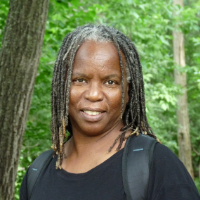
“Jacqueline L. Scott is a PhD student at the University of Toronto studying the relationship between race and space, and how each shapes the perception of the other.
“[Her blog] frequently addresses one of the key factors that inspires many to pursue a career in ecology; safe access to, and a healthy perception of, nature and the outdoors.”
Estelle Raveloaritiana: Reconciling land-use change and biodiversity conservation in Madagascar
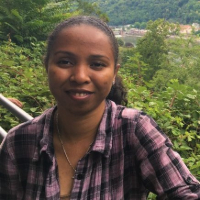
“With my research and as an ecologist, I would like to preserve biodiversity by taking into account the needs of local people.
“I would like to see more people from similar backgrounds to me in the field of ecology. Indigenous people should be more involved in ecological research.”
Perpetra Akite: My Ugandan ecological journey against all odds
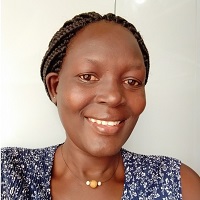
“There is nothing more beautiful than being out in nature and carrying out great ecological studies.
“One key thing that would go a long way to boost interest in ecology, and even more especially for females, is the importance of creating programmes that encourage mentorship, support and retention of specialists. ”
Navigating biological invasion and structural racism in urban systems
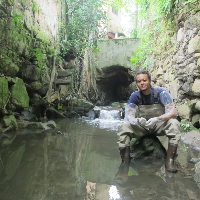
“I am an urban ecologist, interested in how cities affect the ecology and evolution of urban stream biota.
“In the process of collecting stories for my post, some memories of my last field season made me realize that the story behind the paper of a black scientist can give us an idea of how structural racism out of academia can directly impact research”
Read more – Portuguese version
Jhan Salazar: Journeys of an Afro-Colombian Ecologist

From Puerto Tejada, to Washington U – Jhan C. Salazar talks about the journeys of an Afro-Colombian Ecologist
“The opportunity for Afro-Colombians to attend graduate school is even lower…my mom never went to school as child…and my dad graduated from high school at the age of 25.”
Bongekile Kuhlase: Plant distribution on remote Marion Island
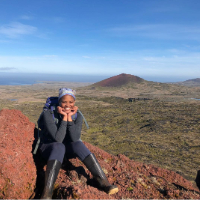
“If I could see one change in academia then I’d like to see a change in the way people are treated…Being offered equal opportunities to progress is something that I hope is addressed in my life time.
“There are hardly any Black ecology lecturers to act as mentors and help you navigate the scary field of academia.”
Festus Asaaga: Reflections of an early career Black scientist navigating the competitive academic space
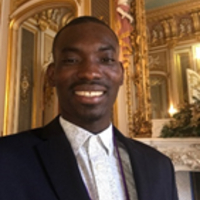
“Without the instrumental role and support of my past and current supervisors who have demonstrated great interest in my professional development, I doubt I would have survived in the academe. But can the same be said of other early career Black scientists in the academe? The time to act is now!”
Trembling in the Balance: My life as a Black ecologist
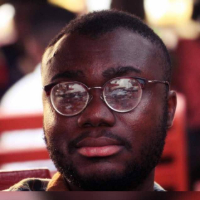
Christian Asante, a fifth year doctoral student at Boston College, shares his research story from Ghana to the USA.
“To truly understand anything in Africa, whether medicine, ecology or conservation, we need to unpack the post-colonial nation state and its complexities.”
Samniqueka Halsey: Informing disease management actions through modelling
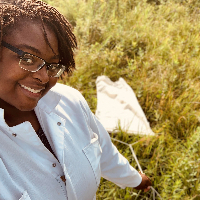
“I watched those with less experience than I did receive rewards and honors, which made me wonder what I was doing wrong.
“We need for the ecologists and professors to represent the demographics of our community at large…Only then can we begin to answer the questions that truly matter to us as humans.”
Gideon Deme Gywa: A Journey to understanding, saving and conserving the Nigerian Biodiversity
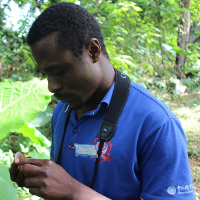
“As a black ecologist, the journey has been mixed with feelings of how interesting the field is and the reality of the difficulty of growing in the field.
“I wished someone had told me that the field of ecology is very interesting but hard to survive in. Despite the challenges in the field, the gains outweigh the losses, so, do not get tired of helping improve the ecosystem.”
Sandra Klemet-N’Guessan: Am I a Black ecologist?
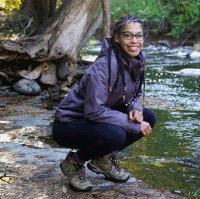
“I am Tunisian, French, Ivorian. Or I am Tunisian-French, Ivoirian. Or I am Ivorian, Tunisian, French. I am also French in North America, or more recently, I am mixed African-European. Depending on the order of the words I use or whether I add a hyphen somewhere, I can convey different nuances of my cultural identity or put the emphasis on one culture over the others. But in any case, all these nuances are part of my cultural identity.”
Zenobia Lewis: On being a token
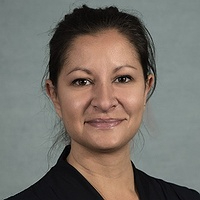
“I don’t think I can adequately express the effect of decades of feeling ‘other’, of always feeling like the token – the BAME female token, shock horror!
“We need to feel comfortable talking openly and honestly about race if we are ever going to do anything about it.”
Further reading from across the BES
- Unearthing the contributions of Black British naturalists by Sara Middleton, The Niche
- Black Lives Matter and access to nature, a cartoon by Holly McKelvey, The Niche
- Tackling racial inequality within the BES, The Niche
- As a Black zoologist, a BAME network matters by Reuben Fakoya-Brooks
- Diversity and the BES statement
- Our commitment to address inequalities by BES Equality and Diversity Working Group
BAME Ecologist Network
Our new BAME Ecologist Network is for all ecologists who self-identify as Black British, British Asian or as a person of colour, and anyone else who feels they would benefit from networking with other UK-based ecologists for whom racial inequalities are impacting their education and career progression.
Representation matters
Please share these posts with any young people you know who may be inspired to take up a career in ecology.
Join the conversation online: @BritishEcolSoc #BlackHistoryMonth #BESBHM
Like what we stand for?
Support our mission and help develop the next generation of ecologists by donating to the British Ecological Society.